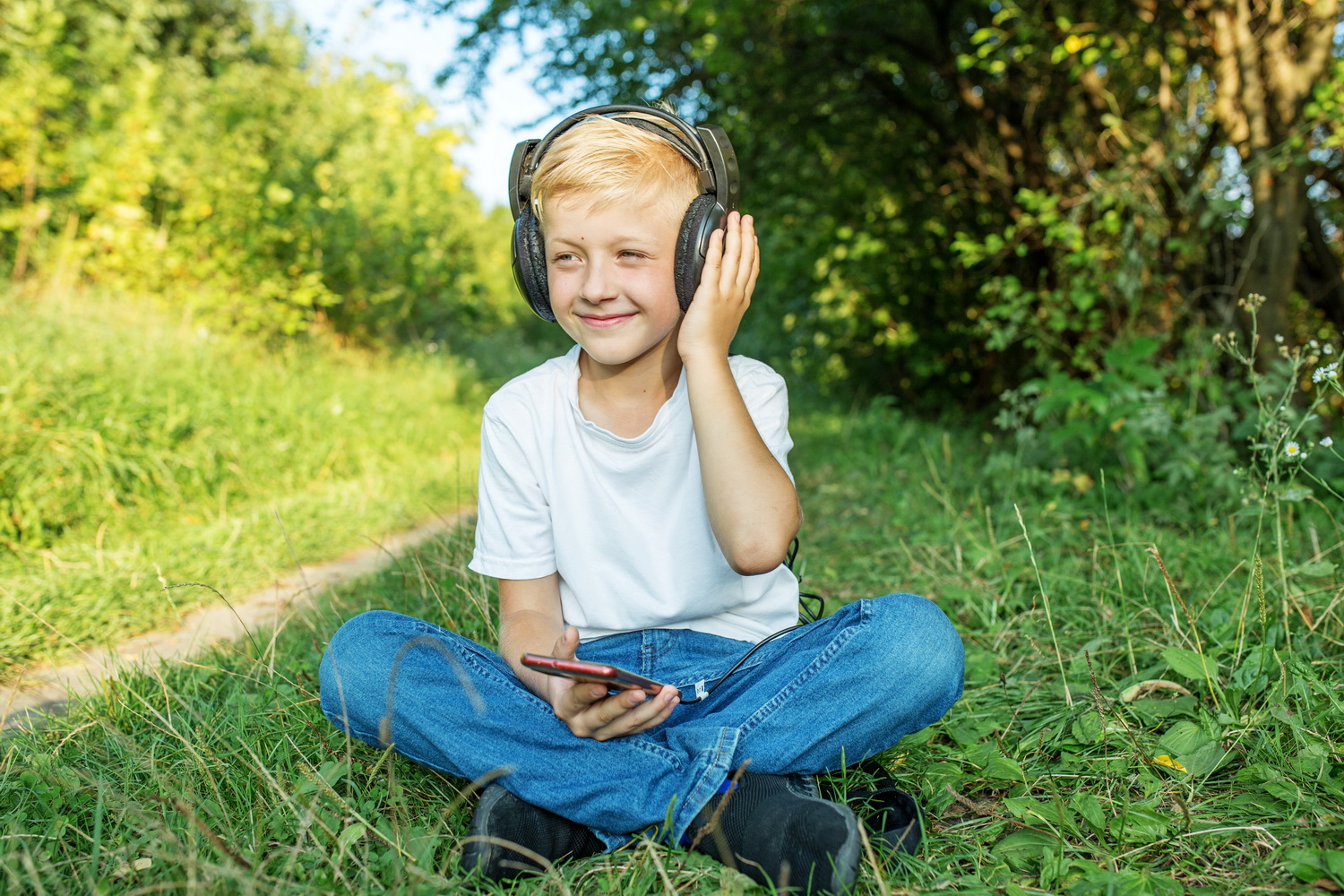Understanding communities Social Studies Worksheets for Ages 6-9
4 filtered results
-
From - To
Introduce your young learners to the fascinating world of communities with our "Understanding Communities Social Studies Worksheets" designed for ages 6-9. These engaging and educational worksheets cover various aspects of communities, including roles, responsibilities, diversity, and the importance of cooperation. Through interactive activities, children will develop critical thinking skills and gain a deeper appreciation for the different community members and their contributions. Perfect for both classroom and at-home learning, these worksheets serve as an essential resource to help children build a strong foundation in social studies while fostering a sense of belonging and community awareness.
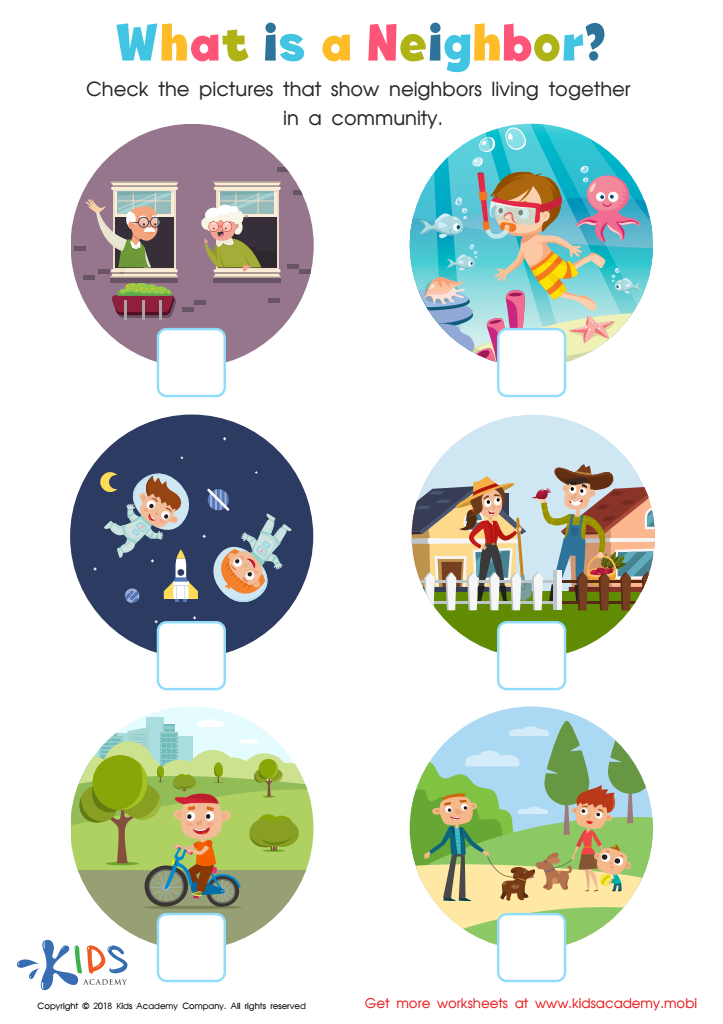

What is a neighbor Worksheet
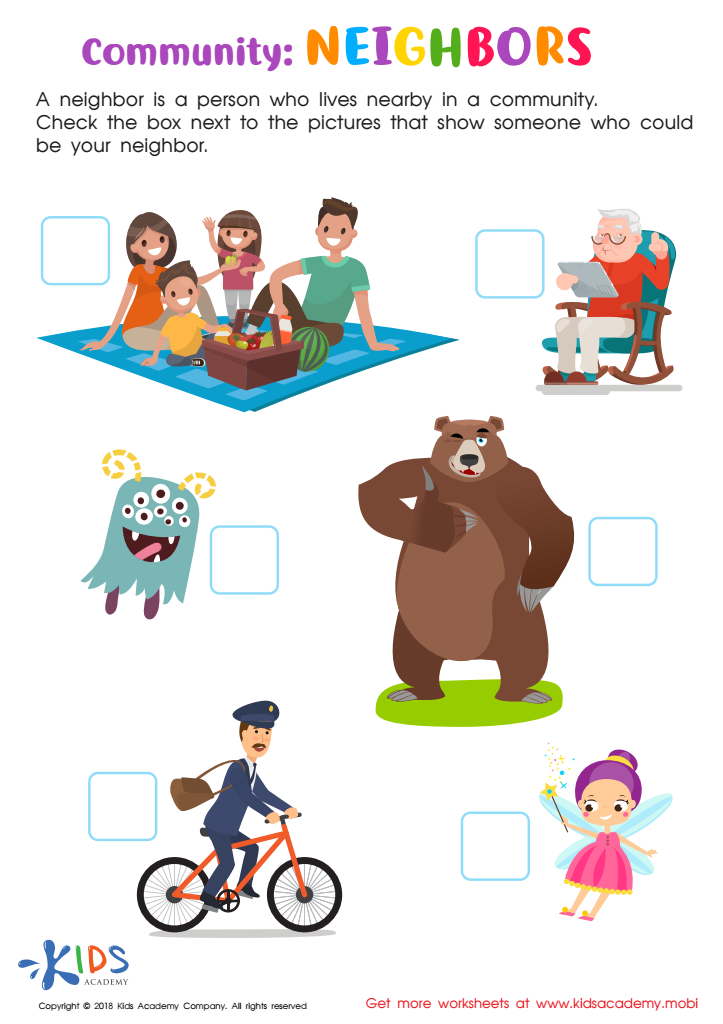

Community: Neighbors Worksheet
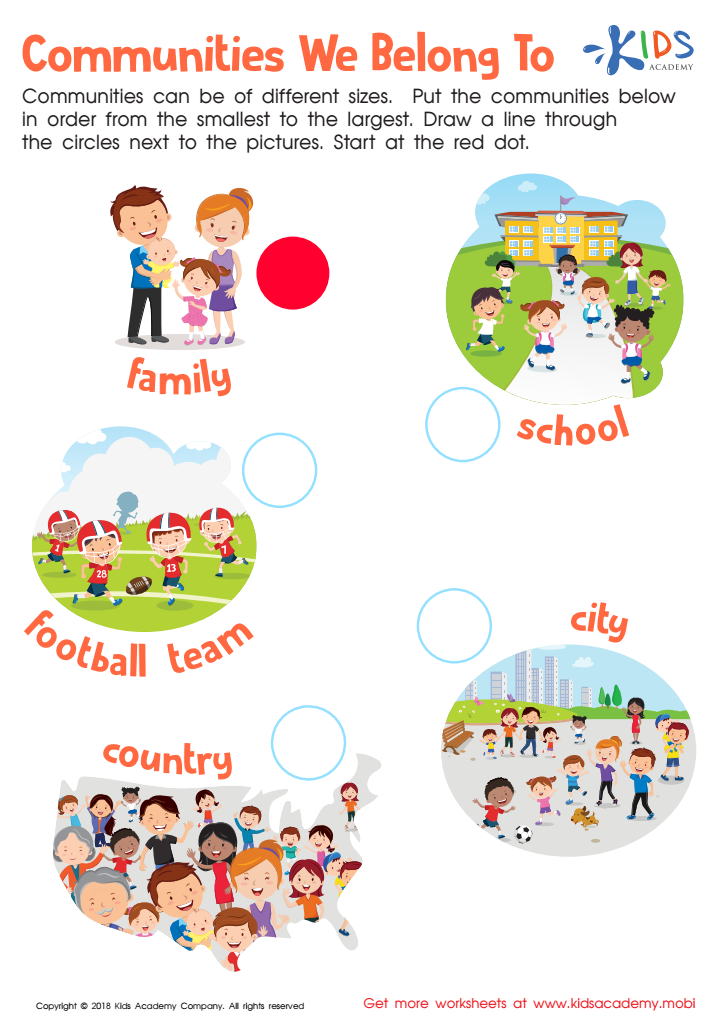

Communities We Belong to Worksheet
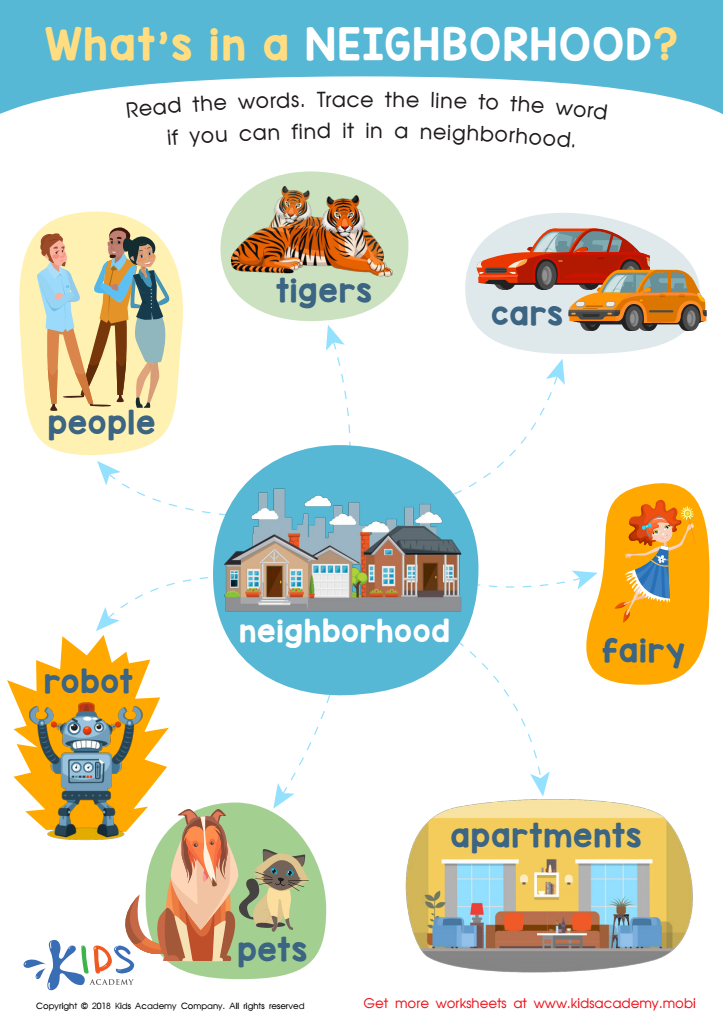

What's in a Neighborhood? Worksheet
Understanding communities in social studies is crucial for children ages 6-9 because it lays the foundation for their social development and sense of belonging. At this age, children are beginning to understand their place in the world, and learning about various communities helps broaden their perspectives beyond their immediate surroundings.
Fostering this understanding enables children to appreciate diversity and promotes empathy as they learn about different cultures, traditions, and ways of life. This, in turn, helps them develop essential social skills, such as cooperation, communication, and respect for others.
For parents and teachers, emphasizing the importance of communities also builds a child's citizenship and civic responsibility. By understanding how communities work, children learn about roles, responsibilities, and the value of contributing to the common good. This awareness encourages active and informed participation in their own communities, fostering a sense of pride and duty.
Moreover, social studies related to communities integrates core educational skills such as reading, critical thinking, and discussion. It provides opportunities for interdisciplinary learning, enhancing subjects like geography, history, and even economics.
Ultimately, a strong grasp of community dynamics enriches children's worldview, empowering them to become kinder, more thoughtful, and engaged individuals capable of positively impacting their society.

 Assign to My Students
Assign to My Students




